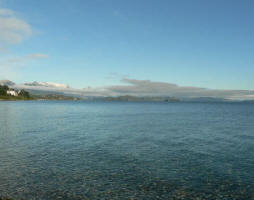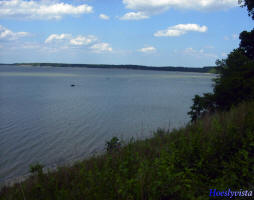 Projection of Economic impacts of climate change in Sectors of the European Union based on boTtom-up Analysis
Projection of Economic impacts of climate change in Sectors of the European Union based on boTtom-up Analysis
"Impacts of Climate Change in Europe: the PESETA Project": The PESETA project focuses on the impacts of climate change on the following sectors: Coastal systems, Energy demand, Human health, Agriculture, Tourism, and Floods. For each of these sectoral categories, a corresponding sectoral-based study is developed by the project partners.
| Project number | n/a | ||
|---|---|---|---|
| Subject(s) | ENERGY , FINANCE-ECONOMY , HEALTH - HYGIENE - PATHOGENIC MICROORGANISM , METHTODOLOGY - STATISTICS - DECISION AID , NATURAL MEDIUM , POLICY-WATER POLICY AND WATER MANAGEMENT , PREVENTION AND NUISANCES POLLUTION , RISKS AND CLIMATOLOGY , TOURISM - SPORT - HOBBIES | ||
| Acronym | PESETA | ||
| Geographical coverage | Italy, Germany, United Kingdom, Spain, Netherlands | ||
| Budget (in €) | n/a | ||
| Programme | Programme of the Joint Research Centre (JRC-EC) | ||
| Web site | http://peseta.jrc.es/index.htm | ||
| Objectives | The objective of the PESETA project (Projection of Economic impacts of climate change in Sectors of the European Union based on boTtom-up Analysis) is to make a multi-sectoral assessment of the impacts of climate change in Europe for the 2011-2040 and 2071-2100 time horizons. The project benefits largely from past DG Research projects that have developed impact modelling capabilities (e.g. the DIVA model) and high-resolution climate scenarios for Europe (the PRUDENCE project). |
||
| Results | The value-added from the PESETA project relies on the following issues: Policy-relevant time horizon: 2020s, in addition to the 2080s. PESETA aims to contribute to a better understanding of the possible impacts of climate change in Europe, an extremely complex issue. In this respect, there are several limitations of the PESETA study (in part, due to the limited resources available for the study, both in terms of time and money) that should be considered when interpreting the results: Cascade of uncertainty. Making a quantitative assessment of the impacts of climate change implies necessarily to deal with many sources of uncertainty, ranging e.g. from the future evolution of population to the monetary valuation of impacts. Each of them should ideally be considered in a probabilistic way. Such an exercise is, however, beyond the scope of the PESETA study and the current state-of-the-art. Results: Preliminary results of PESETA have been published in the Staff Working Paper accompanying the EC Communication on "Limiting Global Climate Change to 2 degrees Celsius. The way ahead for 2020 and beyond" (see DG Environment related Web site http://ec.europa.eu/environment/climat/future_action.htm). The preliminary results for the Floods sectoral study are available at: Feyen L., Dankers R., Barredo J.I., Kalas M., Bódis K., de Roo A., and Lavalle C. "PESETA- Flood risk in Europe in a changing climate". EUR 22313 EN. |
||
| Period | [01/06/2006 - 30/06/2007] | ||
 you are not logged in
you are not logged in





